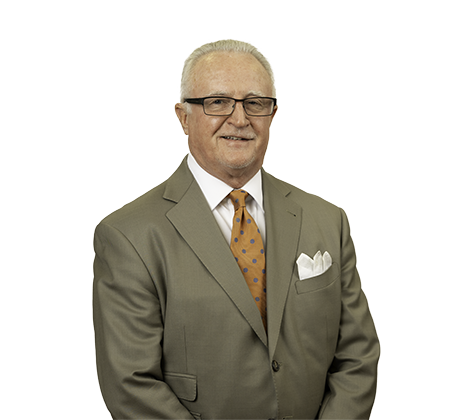In 1991, a New Jersey court issued a groundbreaking decision for the healthcare industry in dealing with HIVpositive and AIDSÂ-infected healthcare workers. The case,Behringer v. Medical Center at Princeton, set broad guidelines for significant issues relating to alleged AIDS/HIVÂbased discrimination in the hospital and the disease's transmission. Recently, the federal courts have taken up these issues in cases involving HIVÂpositive healthcare professionals seeking protection under the federal Americans with Disabilities Act ("ADA") and Rehabilitation Act. While these cases - Scoles v. Mercy Health Corp., Doe v. University of Maryland Medical System Corp. (UMMSC) and Mauro v. Borgess Medical Center - represent significant developments in this area, the opinions leave unresolved the fundamental question under the ADA whether the statute applies to physicians who are not hospital employees. Recall that in Behringer, the court ruled that a hospital's termination of an AIDS-infected doctor's surgical privileges did not violate the state Law Against Discrimination ("LAD"). Significantly, although Dr. Behringer was not a hospital employee, the court found that he was nevertheless protected by LAD because the hospital approved his surgical practice and provided him with a fullyÂequipped and regulated operating room.
As in Behringer, the sharply disputed issue in Scoles, a federal case from Pennsylvania, was the risk of surgeon-to-patient HIV transmission. Upon Dr. Scoles' informing the defendant medical corporation and hospitals that he was HIVÂ positive, the defendants suspended his clinical privileges to perform invasive procedures and, for any future procedures, required documentation of each patient's consent and awareness of his HIV-positivity.
The Scoles court ruled against Dr. Scoles, an orthopedic surgeon, on his Rehabilitation Act and ADA claims. While conceding that the risk of surgeonÂ-to-patient HIV transmission was both low and incapable of precise measure, the court emphasized that such risk's duration and severity were great and that the risk would be present during each operation performed by Dr. Scoles. The court determined that Dr. Scoles was not "otherwise qualified" to perform as an orthopedic surgeon.
The court also found a "direct threat" to others' health, focusing on two facts from the scientific literature: the limited knowledge of the probability of surgeonÂtoÂpatient HIV transmission and the disease's nearÂuniversal result of death. The court concluded that the defendants "reasonably decided" that the plaintiff's patients should not undergo an invasive procedure without knowing his HIV status.
A significant question remaining after Scoles involves the relationship of Dr. Scoles to the defendant medical corporation and hospitals. Dr. Scoles was not the defendants' employee. Nevertheless, the ADA proscribes disabilityÂbased discrimination by employers against employees. The court did not analyze this issue in its opinion. Unlike Behringer, wherein the New Jersey court thoroughly examined the physician-hospital relationship, the Scoles decision does not squarely answer the question whether the ADA applies to a physician who is not employed by the hospital.
In Doe v. UMMSC, the hospital suspended a neurosurgical resident from surgery pending a recommendation of its panel of bloodÂborne pathogen experts. The panel recommended that the doctor be allowed to return to surgical practice under certain restrictions, such as the implementation of rigorous infection control procedures. Upon further consideration and study, however, the hospital administration rejected the panel's recommendations and eventually terminated the doctor from its residency program when he rejected the hospital's offer of alternative residencies in nonÂsurgical fields.
The appellate court agreed with the Maryland trial court and found that the doctor presented a significant risk to his patients' health or safety that could not be eliminated by reasonable accommodation. The court observed that surgeon-to-patient transmission was possible (although not likely) and that the risk of percutaneous injury could never be eliminated through reasonable accommodation. Significantly, the court emphasized the hospital's thorough deliberations and careful consideration of the doctor's case: "In spite of the low risk of transmission, UMMSC made a considered decision to err on the side of caution in protecting its patients." The court found no violation of the Rehabilitation Act or the ADA. Unfortunately, the employment relationship issue left unresolved by Scoles remains open after Doe v. UMMSC. The Fourth Circuit did not address the question.
Recently, a federal court in Michigan ruled that a hospital's termination of an HIV-positive surgical technician who rejected a non-surgical position did not violate the ADA or the Rehabilitation Act. The Mauro court was not required to address the issue unresolved by Scoles and Doe v. UMMSC, however: the surgical technician was a hospital employee. Mauro further exemplifies the federal courts' unwillingness to sustain HIVÂ positive healthcare workers' ADA and Rehabilitation Act claims. Nevertheless, even after this most recent pronouncement regarding the ADA and AIDS/HIV, the question as to whether the statute applies to physicians who are not hospital employees remains unresolved.


